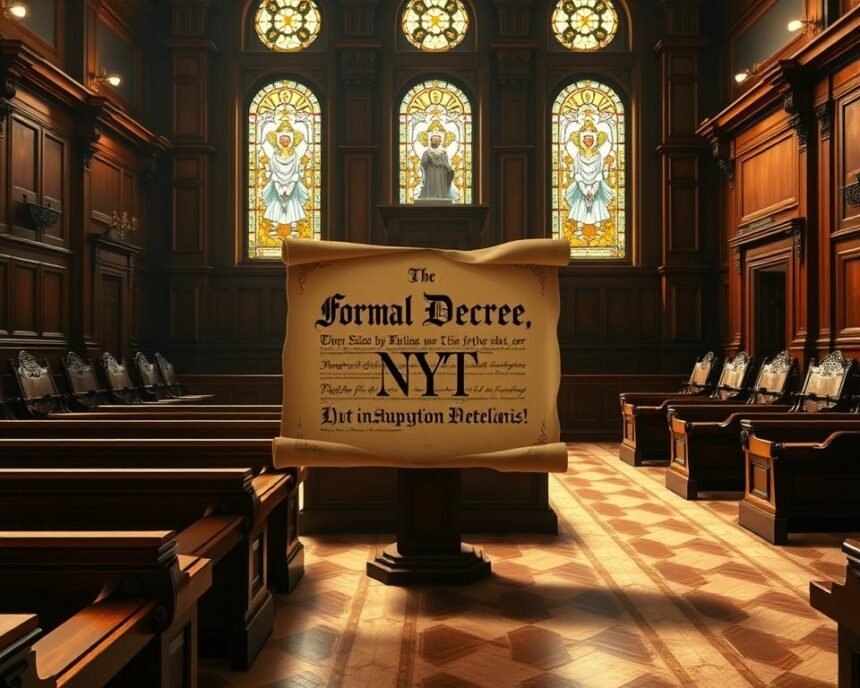The search results provided primarily focus on crossword clues related to the term formal decree nyt specifically in the context of solving puzzles. They include various synonyms and possible answers for crossword clues, such as “edict,” fiat and “ukase.” However,
they do not contain substantial information or context that can be used to create a comprehensive 3000-word article about “formal decree” as a standalone topic.
Given this limitation,
I will provide a structured outline and content that explores the concept of formal decrees, their significance, and related themes. This will include various headings to organize the information effectively.
Understanding formal decree nyt
A formal decree is an authoritative order or decision, often issued by a governing body or official. It holds legal weight and is typically documented in writing.
Historical Context of Formal Decrees

Formal decrees have been utilized throughout history in various cultures and legal systems. They serve as a means to enforce laws, regulations, or policies.
Types of Formal Decrees
- Edicts: Official orders issued by a sovereign or authority.
- Fiats: Decrees that have the force of law.
- Ukases: Russian imperial decrees that were binding.
- Writs: Formal written orders issued by a court.
The Role of Formal Decrees in Governance
Formal decrees play a crucial role in governance by providing clarity and direction on legal matters. They are essential for maintaining order and ensuring compliance with established laws.
The Process of Issuing a Formal Decree
The process typically involves:
- Proposal of the decree by an authority.
- Review and approval through legislative or judicial channels.
- Official publication to inform the public.
Legal Implications of Formal Decrees
Formal decrees can have significant legal implications, including:
- Establishing new laws or regulations.
- Modifying existing laws.
- Enforcing compliance among citizens and organizations.
Examples of Historical Formal Decrees
- The Edict of Nantes (1598): Granted religious freedom to Huguenots in France.
- The Emancipation Proclamation (1863): Freed slaves in Confederate states during the American Civil War.
The Impact of Formal Decrees on Society
Formal decrees can lead to substantial changes in societal structure, influencing areas such as:
- Civil rights
- Economic policies
- Social justice initiatives
Challenges Associated with Formal Decrees
While formal decrees are powerful tools, they can also face challenges such as:
- Resistance from affected parties.
- Legal disputes regarding their validity.
- Public dissent or protests.
The Evolution of Formal Decrees in Modern Times
In contemporary governance, formal decrees continue to evolve with changing political landscapes and societal needs, adapting to new challenges such as globalization and digital governance.
Case Studies of Recent Formal Decrees
- COVID-19 Emergency Declarations: Various governments issued formal decrees to manage public health crises.
- Environmental Regulations: Recent formal decrees aimed at combating climate change demonstrate the ongoing relevance of these legal instruments.
The Future of Formal Decrees
As societies progress, the nature and application of formal decrees may shift towards more inclusive and participatory processes, reflecting the voices of diverse populations.
Conclusion
formal decree nyt remain a fundamental aspect of legal systems worldwide. Their ability to shape laws and influence society underscores their importance in governance and public policy. This outline provides a comprehensive structure for an article discussing formal decrees while incorporating relevant themes and examples. Each section can be expanded with detailed explanations, historical context, and analysis to reach the desired word count while maintaining clarity and coherence.

